Up close with Brandon Marsh
In 2014 Brandon Marsh learned that his wife Amy Marsh had been diagnosed with Acute Myeloid Leukemia. Amy Marsh had wanted to compete again in Kona that year, but ambitions of a top finish on the Big Island were instead replaced with a tough battle with Leukemia at various hospitals. A year has passed since and we checked in with Brandon Marsh to see how Amy is doing, and how he is holding up.
Slowtwitch: Brandon thank you for your time.
Brandon Marsh: No problem. I don't remember when Tim's story ran, but that has been kind of the last media update outside of our website updates. There are days when I wonder what I've done, and others where I've felt super productive. I'm happy to sit down and answer several questions. Hopefully they'll provide a bit of insight.
ST: I guess it is fair to say that it has been a very challenging year for you and Amy.
Brandon: That would be putting it mildly. To go from a target of racing Kona in 2015 before retiring (Amy), to spending the last 9 months fighting leukemia is challenging. For me to go from figuring out what is 'next' to being a full-time caretaker has been challenging. I've said there are 1,000 things I'd rather be doing, but nothing I'd rather be doing.
ST: When you first learned about the acute myeloid leukemia (AML) diagnosis, were you to some degree in denial?
Brandon: Yes, to some degree. We talked to quite a few people through this. Fellow patients and such, and the story is similar. The disease moves quickly, and you need to go to treatment immediately. Then you're in it, and you second guess everything. Literally. Everything.
Some denial, but at the same time knowing something wasn't 'right' for a while. You don't want it to be cancer, and then it is, and some things make sense. The 'why' questions pop up all of the time.
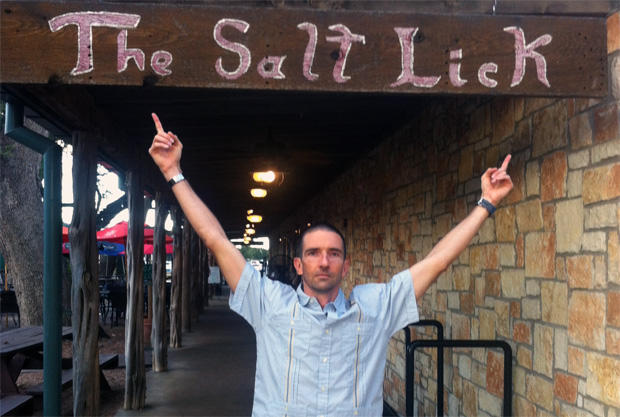
ST: Over the last year what was the toughest thing you dealt with?
Brandon: The answer is different if you ask Amy and if you ask me. For Amy, she has said it's the unknown of how you are going to feel when you wake up each day. There were a couple of times earlier in the year when she had a fever and ended up in the hospital for a week. For me, it's been being 'on' the entire time. I'm probably deeply exhausted right now, but slowly getting caught up on sleep and such.
It has been very hard to walk into a hospital (MD Anderson) almost daily and see the sheer number of people who are experiencing this disease – of all types. The leukemia department is huge there, but MD Anderson treats all cancers. The entire medical center in Houston employs around 100,000 people. No one is immune. But yet, you don't really hear about that when you listen to what “problems” we are led to believe are facing all of us.
ST: When coming close to some of these other cases at MD Anderson, has the thought come up that the card you drew could have been much worse?
Brandon: Sure. We've met people going through stem cell transplants. One of the double-edged swords of being in this position is that you 'want' to keep up with them to see how they are doing. But at the same time, you don't want to because they or their loved one might not have the same results. Things could certainly be better and they could be worse. We've learned to take it day at a time.
ST: What is the status of Amy’s health as we speak?
Brandon: Right now, she is about 13 or so weeks after her 'Stem Cell Transplant'. She is doing well. The doctor has been really pleased with the progress. Everyone is different and not everyone that we have met responds in quite the same way to the treatments.
The next 3-9 months (and up to the 2nd year) are really important in terms of rebuilding her immune system. A SCT pretty much nukes her previous immune system, so it all ends up getting rebuilt. Restrictions on food, being around people, pending vaccinations, etc., are all considerations as we continue to do our best to reduce Amy's exposure to various bacteria, viruses, mold, etc.
In short, she is doing well given the last 9 months. She rides the trainer for 30 or so minutes a couple of days a week, does yoga couple of times a week, walks, and does some light strength work 2-3 days a week. Lots of sleeping, etc. to make sure she doesn't get run down at all. She also isn't swimming because a couple of the medications she is on are still immunosuppressive. Nor is she running because one of the medications can create temporary bone density issues. She and her mind want to do more, but I won't let her!!
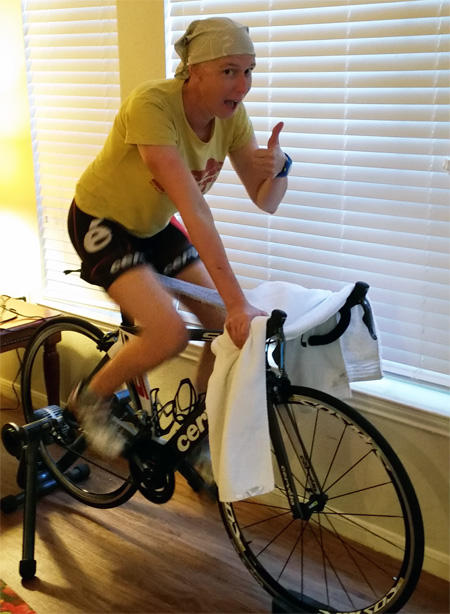
ST: Is that hard for you?
Brandon: Not really. We'd made the decision when Amy didn't qualify for Kona in 2014 that I would coach her this year. In a sense, it's a different coaching role. We talk quite a bit to a friend of ours that Amy has coached with for years about what to 'do' exercise-wise. He has been instrumental in the 'Team Survivor' group in Austin, and he has been a good resource. Obviously, that has been in addition to the doctors and nurses and their guidance in returning back to activity.
ST: A few years back Amy, you, my wife Amy, and I sat at the same table at the Ironman Kona awards, and that seems now very far away.
Brandon: That would have likely been 2012 when Amy was 10th and 9th if Virginia is removed. Yes, very far away.
ST: To what degree did the leukemia diagnosis and subsequent treatment process change your perspective and priorities?
Brandon: Our priorities have really been each other, and we've joked that we have been together almost 24/7 since we have been married. That hasn't changed. What changed was the focus on surviving more than thriving. I've gone through phases where I haven't wanted to have anything to do with triathlon outside of coaching. So much of what it seems we (generally speaking) focus on suddenly becomes trivial. And yet, there are those who are worse off, much worse than we are.
Priorities changed out of necessity. Amy's went from racing to surviving. Mine went from figuring out what is 'next' to what was right in front of me, which was being a caretaker for Amy, an advocate in the hospital, and also juggling many of the things that we might have previously shared.
Everything was put on hold. Everything we'd planned on doing up to this point in 2015. I'd planned on retiring from racing after last season, so that didn't change.
ST: I would suspect you have also learned the value of true friends, and possibly figured out who is and who is not.
Brandon: There are many facets to this question. Initially we felt like we wanted to just get through things, kind of privately, if you will. People want or wanted to help. It was almost overwhelming, and I got better about asking for it when things might have come up. I am sure there have been times where I seemed to have been somewhat ungrateful for the help. It has all been a balance of energy management when it comes to dealing with everything.
There are those who you don't really know who do things like post a phone number on Facebook and say call me, which is so strange to me. A lot, understandably, don't know what to say or do. We've got a lot of current and past friends and acquaintances who have contacted us for medical donations, or offered up any other type of support. We're certainly grateful for that, and it seems a small thing but about all we can do is say a virtual 'thank you'.
A lot of people have generally stayed hands off, as they feel bothersome if they contact me, and more so if they contact Amy. I've found that it is kind of a fine line. Early on, everyone was super supportive and it was almost overwhelming. That isn't to say that they aren't now. It's just that things happen, people get back into their lives, and things fade into the background.
There have only been a couple of cases where things have been over the top, and I've generally dealt with those. Early on someone wanted to 'help' but it seemed more like a ploy to generate business. We've had several people email to say 'oh this works for cancer', and those generally get ignored (by me). My tolerance for BS has always been higher than Amy's, but it's getting less and less as we go.
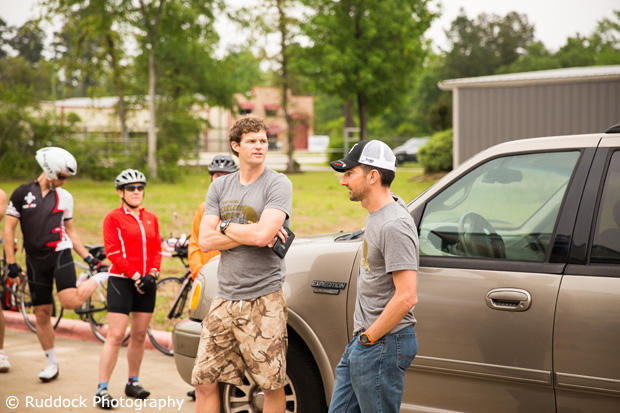
ST: What was the biggest surprise along those lines?
Brandon: Many of our sponsors, supporters, and friends have been really supportive in a variety of ways throughout. There have been some that we expected to hear from, but it has been radio silence the whole time. Not even an email. That was a surprise and disappointing. I'll chalk it up to them not really knowing what to say or do.
Lars Finanger, Ben Hobbs (TRS Triathlon), and a lot of people from The Woodlands put together the 'Fearless Fundo' ride. There was a great turnout. Roka, Cervelo, First Endurance, Smith Optics, many of our fellow pros, and many of The Woodlands multisport community got behind the event with lots of product donations for an auction. Several other groups like the local TNT and a few Houston races and groups have also made donations. I'm leaving out many more, but thank you to all who have helped in one way or another.
ST: Were you surprised when Lance showed up?
Brandon: Yes and no. Yes because he's busy, and it was a full day event. No because from the onset, he'd contacted me about treatment, advice, etc. He has been really good about checking in to see how things are going. We swim with the same group, and have seen each other off and on throughout at the pool.
ST: Has Lance stayed in touch?
Brandon: Yes. I've seen him at the pool several times since we've been back.
ST: Did you renew your pro card for this year?
Brandon: We both did via USAT, and I think that we'll be good for another couple of years with the 3-year qualification rule. I haven't raced this year, nor do I plan on it. I kicked around the idea of doing some kind of race, but it's just so far down on my priority list that I'm not planning on it. Amy did renew her WTC license, but with her diagnosis we requested and received a refund on that.
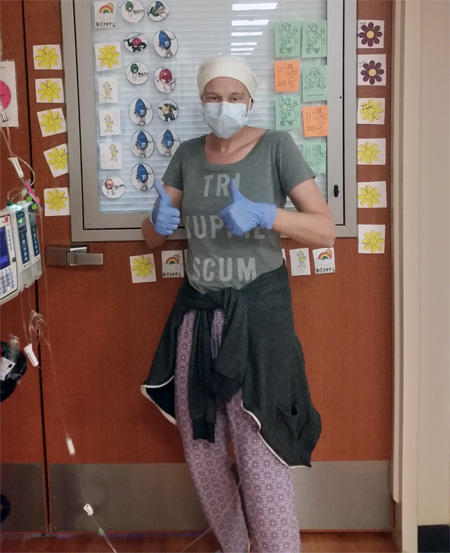
ST: You are a highly recommended and experienced coach. How busy are you along those lines?
Brandon: That's flattering, thanks. I've coached in some way or another since college, so 15-plus years. Through the years, the coaching has helped us stay above water at times. This year has been no exception. In the past, I have balanced my athlete load with racing. This year it has been with Amy's treatments and our schedule.
I've had a long tenure with many of my athletes. I've had several Kona qualifiers and several first timers. I'll have the ability to bring on 3 or so more clients. It is getting to be the coach dropping/shopping season, so that number may go up depending on what a few current athletes do.
My main goal is to make sure I deliver what the athletes expect. I keep the numbers pretty low to make sure I can do this. In 2016, I'm going to try to bring on a few more athletes on more of a program basis that I've done very selectively in the past. It's better than free, but also not as expensive as typical online coaching. It's something that Amy may help with. She is a gifted on-deck swim coach, but that's probably another 5 months away before she can be on-deck.
ST: There are a lot of coaches out there, but how can an athlete figure out if a coach has the proper knowledge and is a good match?
Brandon: With the number of certifications (USAT and WTC for example) out there and larger coaching companies, it can take some work and searching to find a good fit… especially if an athlete is looking for more of an independent coach.
Coaches generally want to coach, whether it's distance or in-person coaching. Both can be done successfully with the digital tools available. Now, there are many more things that athletes want in addition to the coaching aspect.
Hiring a coach is like any other purchase. As a customer, you need to do your research on your possible coach. You (the athlete) need to have an idea of what you expect. Ask questions. Is your primary requirement workouts, feedback, advice, and planning, etc.? If you want all of that and product discounts, group workouts, team parties, etc., then you need to look for someone who can meet those expectations as well.
ST: Can you describe your process before you agree to coach someone?
Brandon: For me, it's pretty simple. My clients usually come from a referral basis, and have spoken with a current or past athlete before contacting me. On my end, I don't have much of an intake process. If I have availability, we'll generally talk on the phone a bit, do some email back and forth, and if they think it will work out, we get started. All levels. No start-up fee, and currently I have no minimum terms.
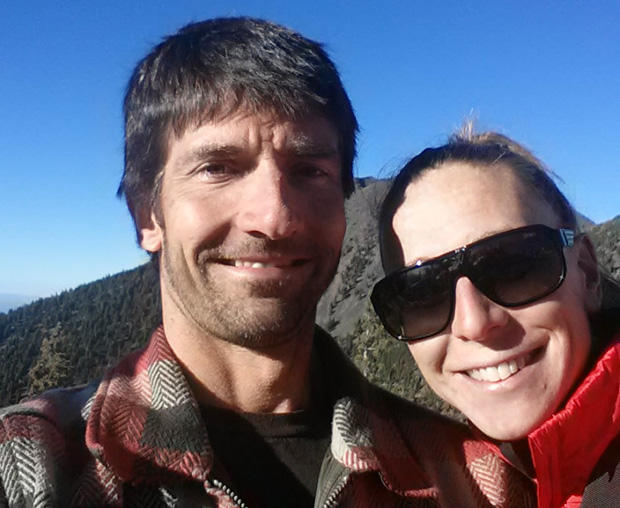
ST: So what is next?
Brandon: There's one question that has been a constant since last year. 'What is next?' has been the question. When this publishes, we'll probably be in Houston at MD Anderson for a follow-up. Nine months ago, the answer would have been different. I'm looking at a few engineering-related and coaching options. It is trying to find the right fit for our current situation. I'm wrapping up the season with a few athletes and prepping for next season with several as well.
I'm swimming about 3-4 days a week, going to 'lift' weights a couple of times a week, and running 3 short runs a week. Staying fit but not training.
Really though, tomorrow is next. We put together a loose plan for the week and month, and adjust as needed.
ST: Anything else we should know?
Brandon: I'm sure I'll remember something after this publishes! We want to reiterate the Thank You to the triathlon community and those outside of the tri community – our old hometowns, friends of friends, and family etc. for the support.
You can follow Brandon Marsh on Twitter via @BrandonMarshTX and Amy Marsh via @amycmarsh. Catch them both via team-marsh.com if you want to send them some love or grab one of those limited and superb coached spots.



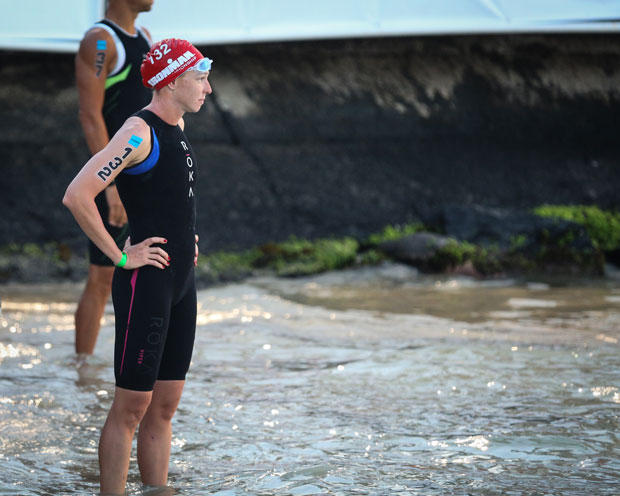
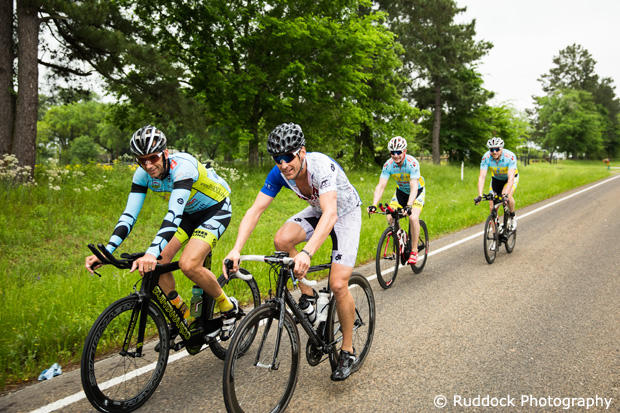
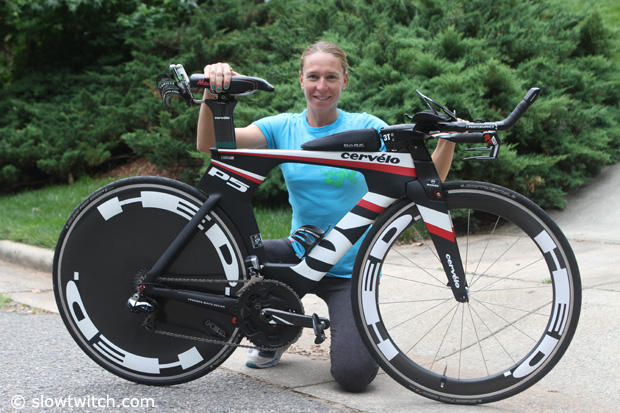
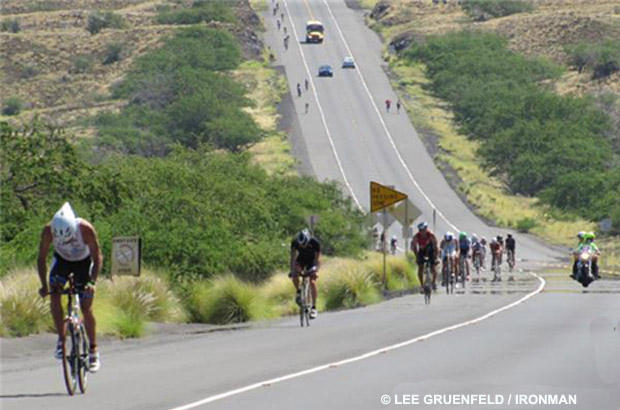

Start the discussion at forum.slowtwitch.com